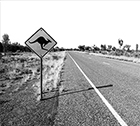Somewhere in that thread we found the following article written by Dr Barbara Dobson and Ken Macintyre — anthropologists who have worked in this field for many years — that looks at these issues generally and also in the light cast by recent events in the west. Barbara and Kenneth note that:
“From our experience, mining companies rely on the anthropologist’s advice on issues of indigenous heritage and Native Title. No anthropologist is coerced into unethical situations or practices. They have a choice. They either do so willingly or they do not take on the job.”
What follows is a lightly edited version of their paper …
Congratulations to the Yindjibarndi Traditional Owners on their documentary, which exposes a company’s bullying tactics over access to indigenous land and cultural heritage. This documentary will hopefully generate further discussion on the role of anthropologists vis-a-vis mining and development with a view to the real world of consultancy anthropology.
The way we see it is that the role of a consulting anthropologist is one of research, recording and facilitating Aboriginal consultations. It is fundamentally the role of a field secretary who is aware of the socio-political and cultural context in which they are working.
The anthropologist records the events and discussions taking place between indigenous people and the proponent in a non-prejudicial manner, and when facilitating meetings, the anthropologist must include the relevant recognised heritage spokespersons and native title representatives who speak for the particular project area under consideration, and they must ensure that the elders/native title claimants/holders are free to ask questions of the company and to have their say on any issues of concern to them.
The anthropologist should not in any way influence the outcome of these meetings, no matter who their client is. The question of who pays the anthropologist shouldn’t matter; whether it is a mining company or an Aboriginal organisation, the results should be non-partisan.
Sadly, too often highly qualified anthropologists perceive themselves as “fixers” for a wide array of mining or development-related issues and they do not hesitate to manipulate local Aboriginal politics and take advantage of indigenous poverty by offering handfuls of cash to achieve company ends.
There is always the potential for a conflict of interest between the anthropologist’s professional or personal code of ethics and the mining company’s way of achieving their economic objectives.
In discussing all this we should get away from the noble idea of anthropology and get down to the nitty-gritty of Anthropolitics — because that’s what it’s all about.
The Yindjibarndi documentary says it all. A white mining company wants to access mineral resources on the cheap.
It comes up against a formidable Aboriginal group such as the Yindjibarndi who understand the company’s exploitative tactics and who stand up for their rights as native title claimants.
Prior to the meeting the company knew that in order to get its approvals through it would have to go through the motions of a democratic voting process or rather pseudo-democratic voting process.
In consultation with their anthropological advisor and legal expert, arrangements were made to bus the dissident group to the meeting, thereby stacking the votes in favour of the company’s agenda.
A tried and true tactic which never fails — unless of course it is captured on film and carried into cyberspace for the whole world to see, as in this case.
The strategy of bussing people around is not new. It was used effectively during the Swan Brewery protest in Perth where Aboriginal dissidents were ferried in from Wiluna to speak against local Nyoongar elders who were trying to protect their spiritual heritage from development. The Wiluna people were not related to the Swan River Nyoongars but this didn’t matter to the politicians.
The development still went through.








Crikey encourages robust conversations on our website. However, we’re a small team, so sometimes we have to reluctantly turn comments off due to legal risk. Thanks for your understanding and in the meantime, have a read of our moderation guidelines.